We are in the Syunik region, visiting village after village and speaking with residents to understand the growing trend of locked homes. We know communities are working on developing strategic programs for village development, but the results are not yet visible—many villages struggle with poverty and half-emptiness.
In Tatev, the emptiness is seasonal. As the weather warms, the village springs to life. The Tatev Monastery and the Wings of Tatev cableway transform it into a bustling tourist hub. More villagers start selling goods near the cableway and along the road to the monastery, offering a wider variety of goods, while food stalls see long queues. Many residents convert their homes into guesthouses to accommodate visitors. The monastery area becomes crowded with groups of pilgrims. The flow of people and income in the village grows. However, as autumn progresses, the village becomes quieter and emptier once again.
It is November 23, 2024, at 4 a.m. I leave Goris for Tatev to meet Father Mikayel.
Before the first light touches the monastery, a service begins within its walls.
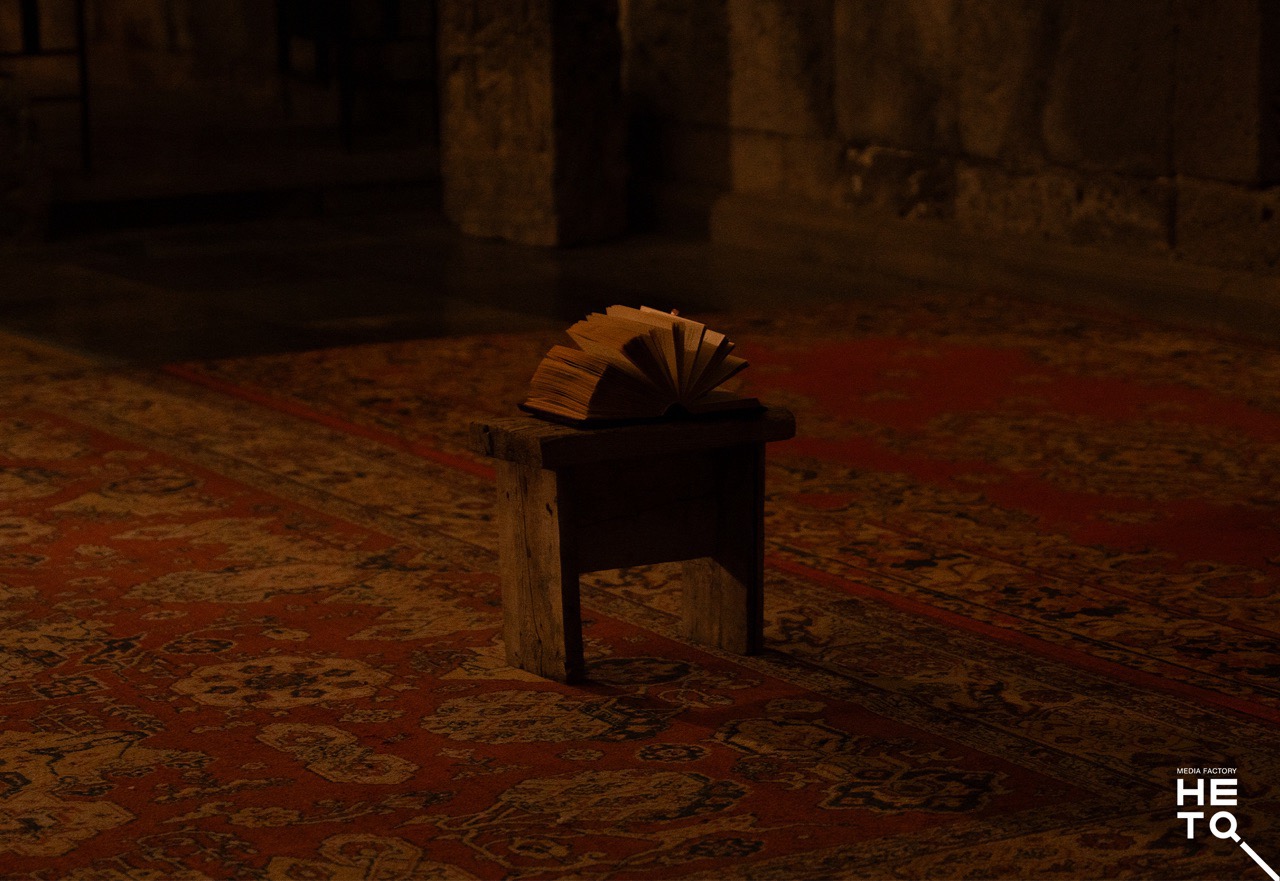
I am the only one attending the service in the hall of the St. Paul and Peter church. Three clergymen lead the ceremony, reciting prayers, chanting the liturgy, ringing bells, and burning incense.
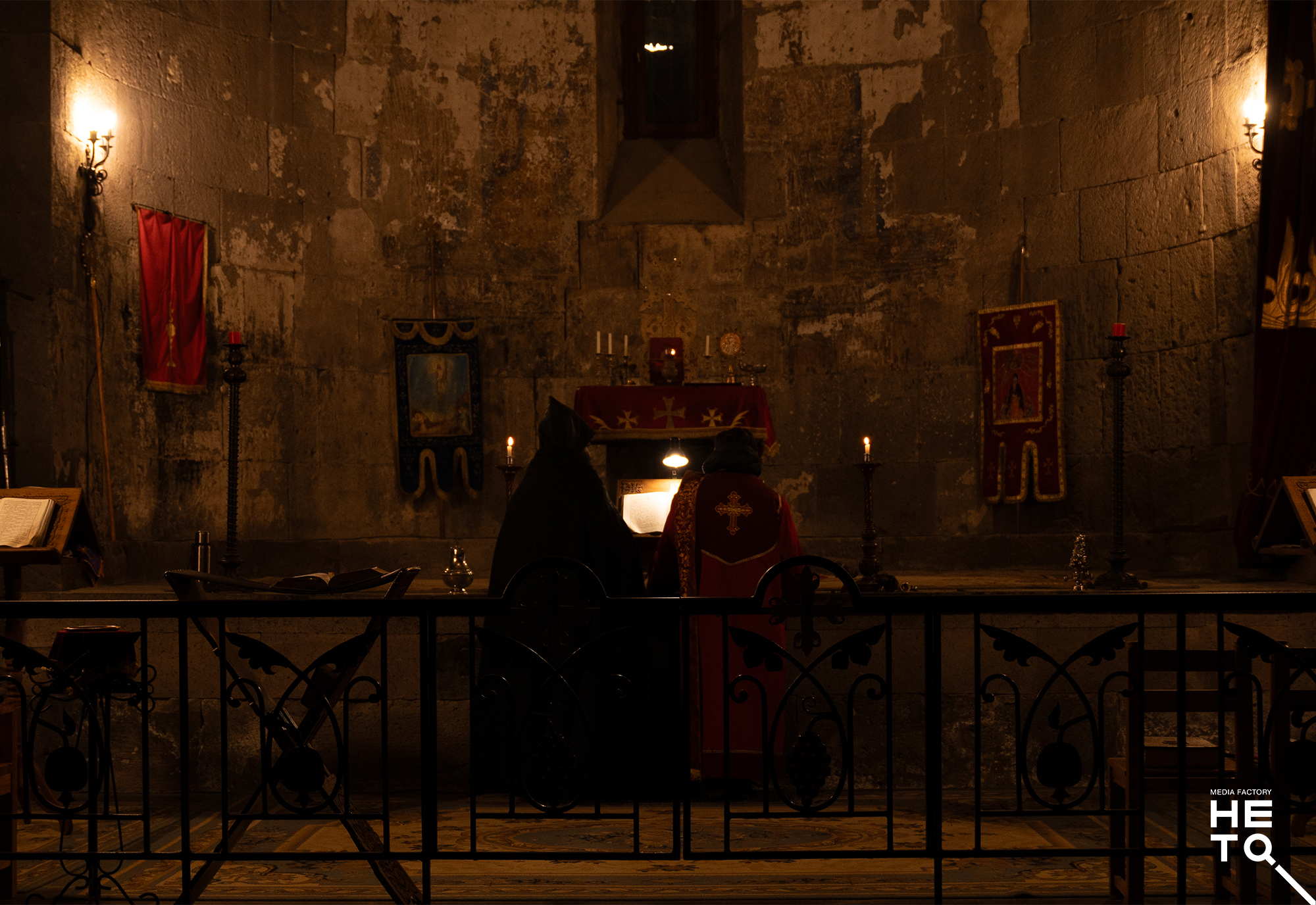
Historical overview
The name "Tatev" has been interpreted in various ways over time. Father Mikayel, who has served at the monastery for nearly two decades, explains:
"The origin of the name is often linked to myths, with some suggesting it comes from the phrase 'give wings' ('ta tev'), but the monastery is not mythical—it is real and alive. The monastery is named after Eustace, a disciple of the Apostle Thaddeus. He preached Christianity and was martyred in this area.”
In the 4th century, a church was built over the tomb of Eustace, but it did not stand out in terms of the number of monks or its architecture.
Bishop Artak Smbatyants, in his book “A Brief History of the Tatev Monastery,” notes that the golden age of the monastery was in the 9th century. Bishop Davit purchased the land surrounding the monastery from Prince Philip of Syunik and later received the village of Tatev as a gift from the prince. Later, in the 10th century, the monastery became an educational center, and by the 14th century, thanks to Saint Gregory of Tatev, it was already known as a university.

Father Mikayel, who has been serving at the monastery for 17 years
Father Mikayel regularly visits the villages of Tatev, meeting with children and adults. Our conversation was often interrupted: believers entering the monastery would approach him, seeking advice or sharing their thoughts.
Father Mikayel has been serving at Tatev Monastery since 2007. I spoke with him about the emptying of villages and the Tatev Monastery.
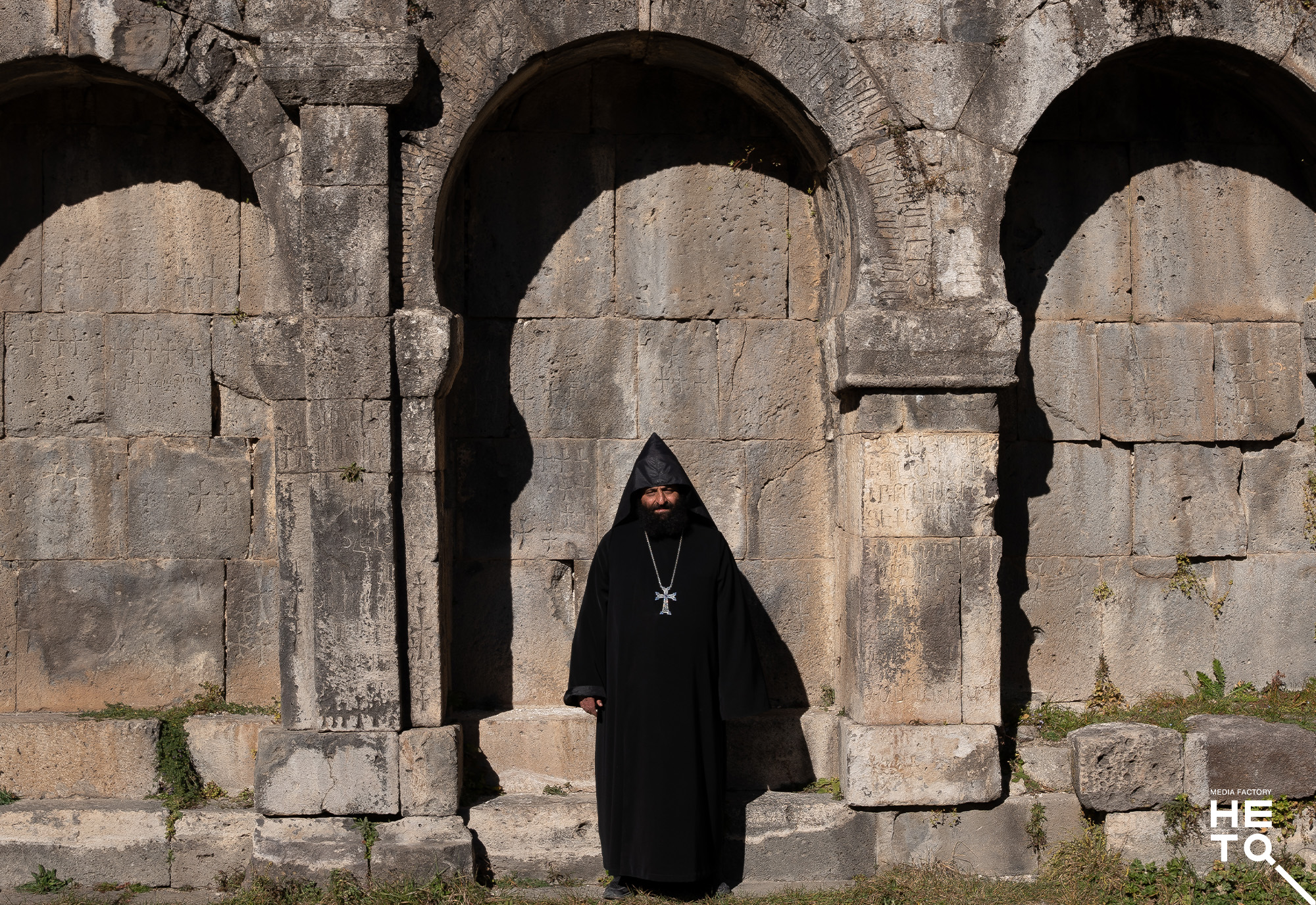
— Why are the villages of Tatev depopulating?
— People are striving for a better life. Life was hard even 100 years ago, but there weren’t as many temptations back then. People stayed in their homeland and lived in harsher conditions. Life has become more interesting now, and the village no longer attracts people. Animal husbandry doesn’t provide significant income. If you raise livestock and farm the land, you’ll barely make ends meet. And if you get sick or need money for education, you’ll have no choice but to sell what you have.
— And why have the temptations increased?
— The internet and television promote an easy life and livelihood. Temptations are luring our children away. They think, “Should we stay? What should we do? Raise livestock? Cultivate the land?” The whole world is changing, not just Armenia. Everywhere people are moving to cities.
— What should be done to prevent villagers from leaving the village?
— Jobs need to be created. The people of Goris or Sisian strive to go to Kajaran to work at the combine. It’s hard work, but it allows them to support their families. A working villager won’t go hungry, but the lure of an easier life tempts them, and they want to escape the “stagnant” life. There are many pastures in the villages; they can raise livestock and cultivate the land. The spiritual aspect is also important. While villages have churches, they don’t function fully, and there’s little active community engagement. Fewer people are being baptized, and church attendance has declined. As for me, I left everything behind and came to Tatev to serve. The meaning and purpose of my life are here, in peace and interaction with the people, not in the hustle and bustle of the city. For me, that hectic city life is torturous.
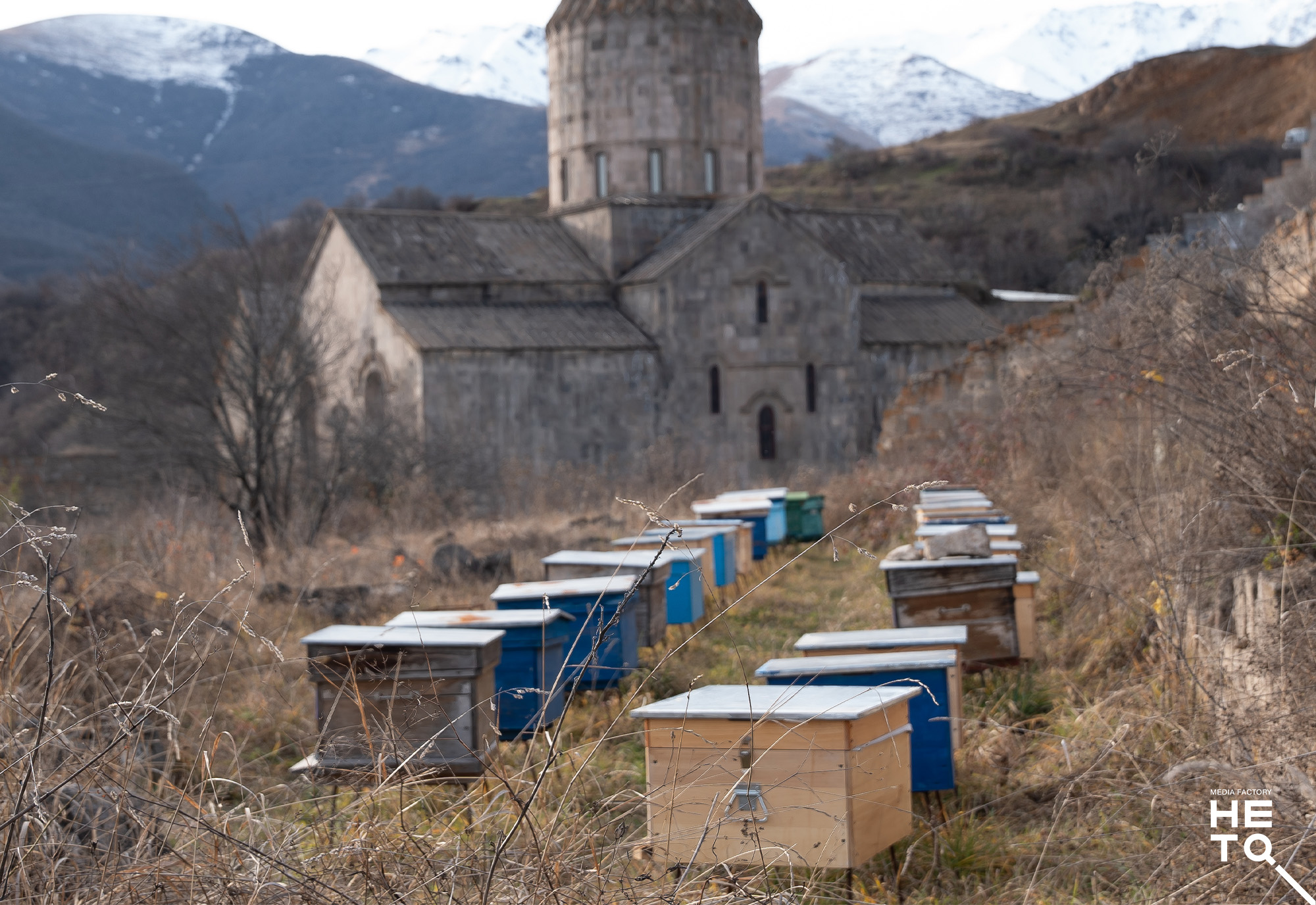
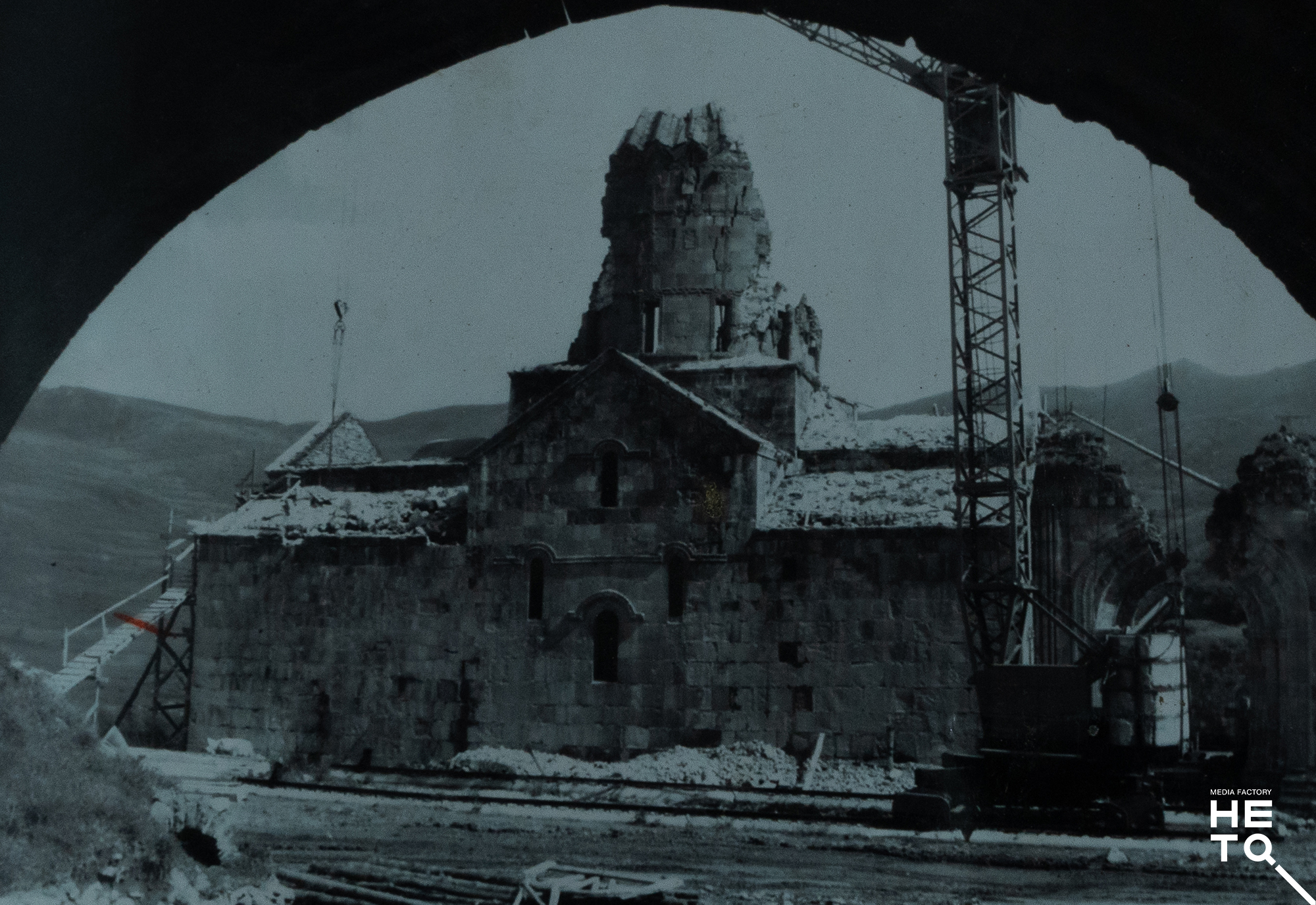
— What draws people to Tatev?
— Its nature, sacredness, mystery, and beauty. People have prayed here for 1100 years. It is the resting place of Saint Gregory of Tatev. A kind of heavenly peace pervades this place.
— What is the current state of the Tatev Monastery Complex? Does it need renovation?
— The entire roof, except for the dome, needs to be repaired. The bell tower is also in a state of disrepair. Between 1983 and 1991, the roof was renovated under the initiative of His Holiness Vazgen, but it was poorly done, and water leaks inside.
— How do you envision the future of the monastery complex and the Tatev community?
— I focus on the present. The efforts we put in today will determine the outcomes we see in the future.
The decade-long hermit
It was getting dark when I left Tatev and made my way to the Great Hermitage of Tatev. Father Mikayel had told me about a hermit living there in seclusion. Following a narrow, rocky path, I crossed the Vorotan River on foot to reach the hermitage.
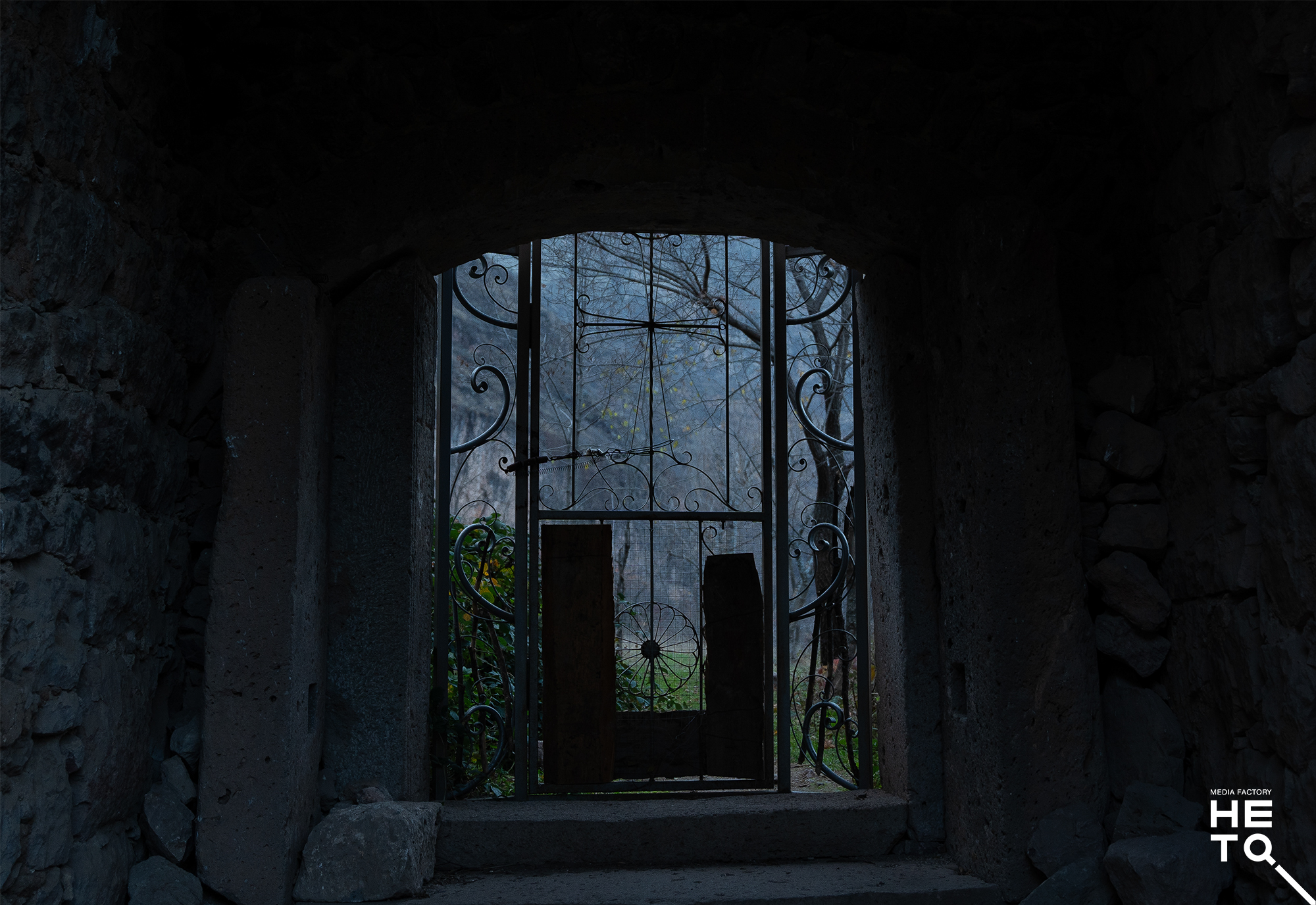
In 1658, the Tatev Monastery was destroyed by an earthquake, and Catholicos Jacob built a new monastery in the gorge on the right bank of the Vorotan River, relocating the Congregation there. According to Armenian historian Arakel of Tabriz, the monastery was home to over 700 monks in the 17th century. Today, all that remains are the ruined hermit cells, the 17th-century Church of the Holy Mother of God, and its sole resident—Monk Hakob.
In November, the Great Hermitage of Tatev was entirely green, hidden among the trees.
Monk Hakob has become accustomed to the life of a hermit and solitude. He has cleaned his cell with a tiny window and everything around it, grows his own food and attends the liturgy at the monastery every Sunday.
— How did you come to the hermitage?
— In October 2013, having heard much about Father Mikayel, I came from Gyumri to Tatev. I came with pilgrims to visit the hermitage; it was lost in the grass. When I arrived, I realized this was the place I had been searching for my entire life. I was crying with joy. In March 2014, I went to Jerusalem for a year. In the spring of 2015, I returned here and found the most neglected and dirty cell. Every morning, I would walk from Tatev to clean the cell and return covered in dust and dirt in the evening. I moved here in mid-May 2015. I came to the Harants Anapat [Hermitage] to pray. This place is my whole world; I don't know anything beyond the cells and the church.
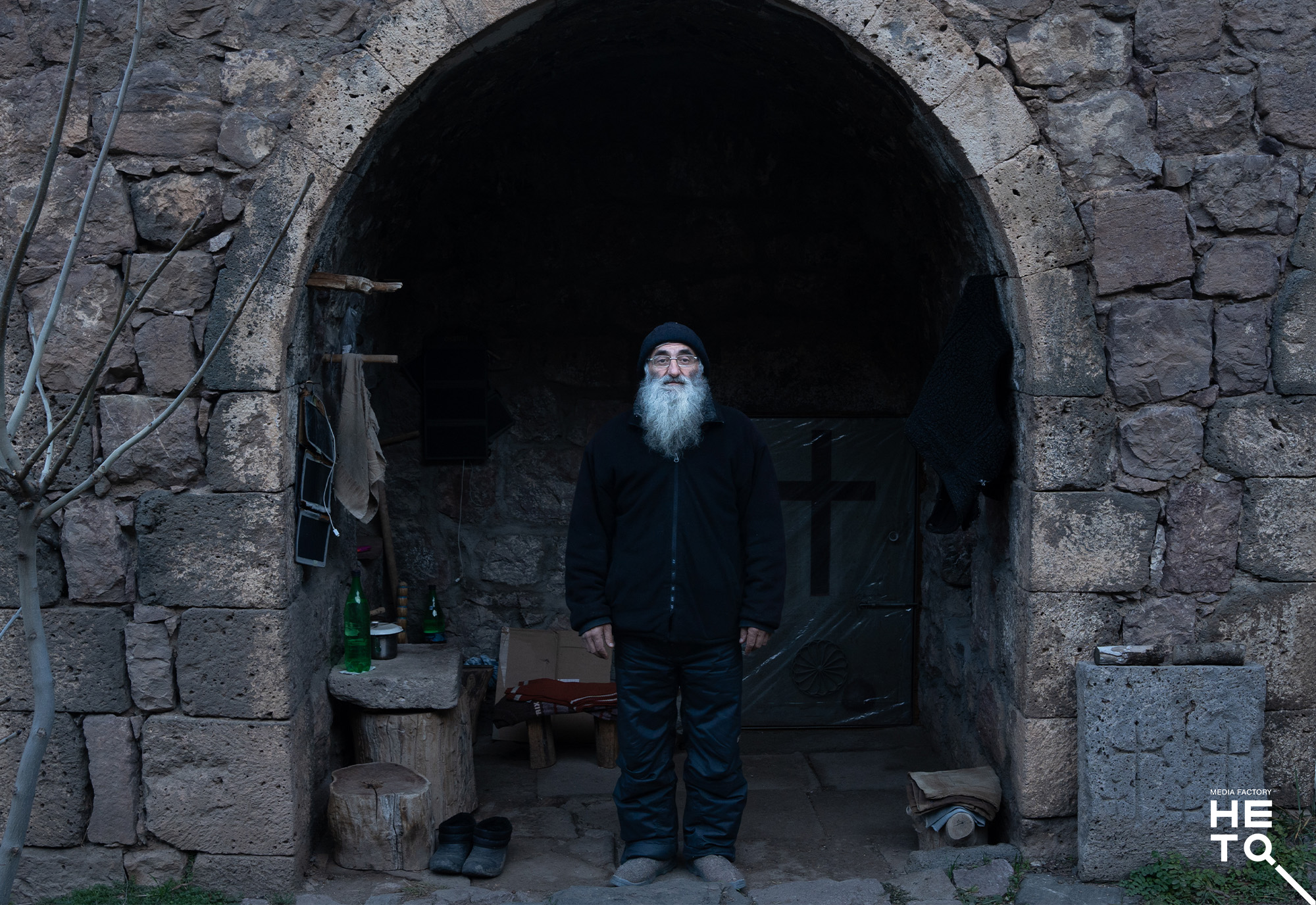
— What did you do before becoming a hermit? Do you have a family?
— I worked for 12 years as the chief specialist in the communal services department of the Gyumri Municipality. My family lives in Gyumri; I have three daughters, and they visit me at least once a year. I also go to Gyumri twice a year to help at home, as they need a man's help.
— Don’t they miss you? Don’t they call you back?
— It is God's mercy that my wife and children understand me. They know that spirituality always comes first, and the material world isn’t for me. On one side of the scale is the world; on the other, the heavier side is God.
— What do you eat here?
— I grow my own vegetables—tomatoes, cucumbers, beans, eggplant, and pumpkins—until the end of September. The monastery also provides food. I eat buckwheat, lavash, and canned goods. Now I store everything outside because it’s cold, and the food won’t spoil.
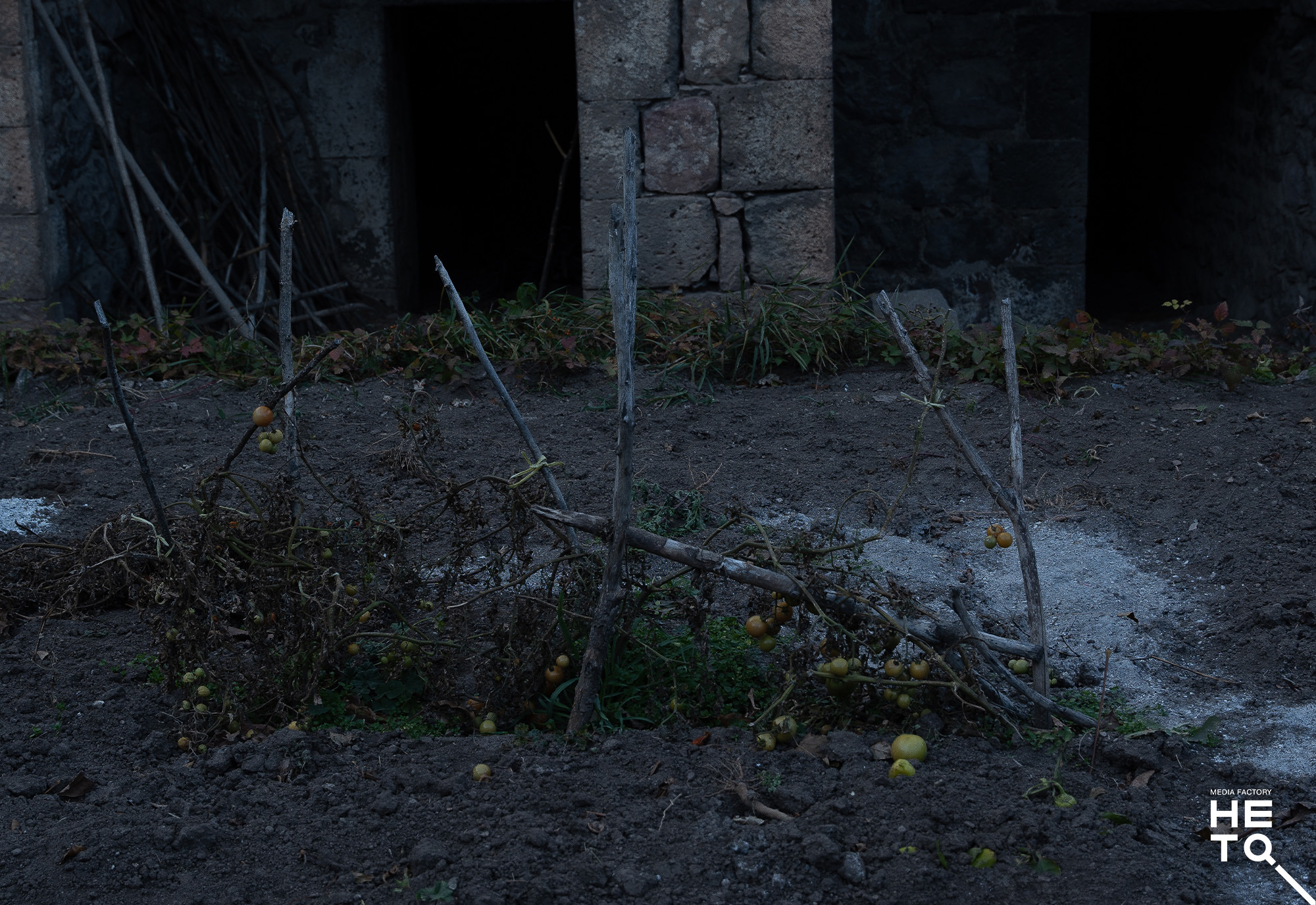
— You will stay here until…
— I haven't decided how long I'll stay. If construction begins here, I'll leave in 2-3 days to escape the noise, but there's no talk of that yet. If a road is built here and cars stop at the monastery gate, I won't stay either; I'll leave.
After listening to the hermit's evening prayer, I left the hermitage late.
I returned to Goris feeling at peace. Although I didn’t find clear answers to my questions about the depopulated villages and locked houses of Syunik, I realized that people seek peace in different places and ways. Some find it in the hustle and bustle of the city, while others, like Father Mikayel and Monk Hakob, find it in Tatev, within the monastery walls, and in the silence of the Hermitage.
This project was supported by CFLI. The views expressed in this video are those of the author(s) and do not necessarily reflect the official policy or position of CFLI.

Author
Students
Ani
Hovhannisyan
Instructor
Instructors
Mariam
Barseghyan
Team
Team
Zhanna
Bekiryan
Team
Harutyun
Mansuryan
Team
Lilit
Tarkhanyan